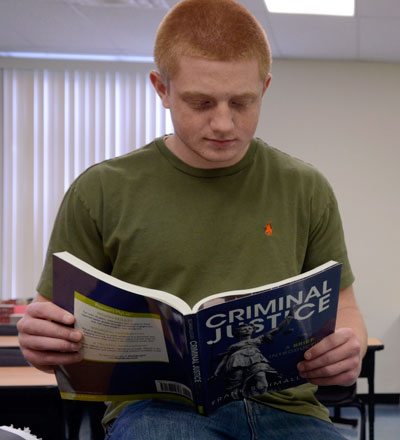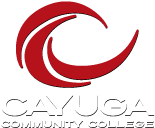CRIMINAL JUSTICE – CORRECTIONS A.A.S.
The Criminal Justice Corrections program builds a critical foundation for employment in the field of institutional or community-based corrections. A strong base in social and/or behavioral science curriculum will also be provided. The program is devised for students to enter the corrections field in an entry-level position or to transfer to a four-year institution offering a criminal justice or closely related major if desired.
CORRECTIONS PROGRAM LEARNING OUTCOMES
- Identify the various components of the criminal justice system and how each component interacts.
- Describe the structure and varied functions of the correctional system.
- Identify current trends in institutional and community-based corrections.
- Apply correctional theory and law to real world scenarios within institutional and community-based corrections.
- Identify factors relating to juveniles and crime, current trends and issues relating to juvenile justice, and treatment and rehabilitation of juveniles including alternative and diversion programs.
- Understand and identify current practices in corrections administration.

CAREER POSSIBILITIES
Career opportunities will vary including, but not limited to: Local, state and federal correctional institutions as Correction Officers, Supervisor of Correctional Officers, juvenile detention centers, and positions within alternative programs such as Victims Advocate, Case Management, or Case Counselor. Community-based correction positions such as Probation Officer or Parole Officer begins with an AAS at Cayuga but will require transfer to a four-year institution for additional education.
NOTE: Civil service exams are required for most institutional correctional positions as well as certain physical requirements and an extensive background investigation. Additional education and/or training may be required for certain institutional and/or community-based correction professions.

TRANSFER INFORMATION
Students planning to transfer to a four-year institution degree program in Criminal Justice or a related degree program should contact their advisor, or the Coordinator for Transfer and Articulation in the Centers for Student Engagement and Academic Advisement, or the Criminal Justice Coordinator to plan the most appropriate course sequence for optimal transferability. It is highly suggested that students who wish to transfer complete their current degree program in its entirety unless they have met with the appropriate staff and a more comprehensive plan is attained.
DEGREE REQUIREMENTS
The program provides a broad insight into the total correctional process with emphasis on the areas of probation and parole.
The curriculum listed on this page represents the minimum coursework required for the AAS degree in Criminal Justice: Corrections. Any exception in major courses must have the written consent of the Chair of the Division of Behavioral/Social Sciences, Business, Criminal Justice, Teacher Education, Physical Education/Health.
The candidate for the AAS in Criminal Justice: Corrections program must meet the following requirements:
- Completion of all required credits – 63 total
- Cumulative average of no less than a 2.0
| COURSES | CREDIT HOURS | |
|---|---|---|
| FIRST SEMESTER | ||
| ENGL 101 | Freshman English I | 3 |
| CJ 111 | Introduction to Justice Systems | 3 |
| CJ 115 | Criminal Law | 3 |
| PSY 101 | Introductory Psychology | 3 |
| Math/Science | 3 | |
| Health | 1 | |
| Physical Education | 1 | |
| 17 | ||
| SECOND SEMESTER | ||
| ENGL 102 OR ENGL 270 |
Freshman English II OR Technical Writing * |
3 |
| CJ 112 | Organization and Administration of Justice Systems | 3 |
| SOC 101 | Introductory Sociology | 3 |
| Behavioral Sciences | 3 | |
| Math/Science ** | 3 | |
| Physical Education | 1 | |
| 16 | ||
| THIRD SEMESTER | ||
| ENGL 220 OR ENGL 221 OR ENGL 222 |
Interpersonal Communications OR Effective Speech: Public Address OR Effective Speech: Group Discussion |
3 |
| CJ 117 | Juvenile Delinquency | 3 |
| CJ 121 | Institutional Corrections | 3 |
| Behavioral/Social Sciences | 3 | |
| Elective *** | 3 | |
| 15 | ||
| FOURTH SEMESTER | ||
| CJ 211 | Case Studies in Criminal Behavior | 3 |
| CJ 213 | Community Corrections | 3 |
| CJ 220 | Criminology | 3 |
| Electives | 6 | |
| 15 | ||
| TOTAL CREDIT HOURS | 63 | |
* ENGL 102 is strongly recommended for transfer students
** CHEM 108 (Forensic Sciences) may be used as a science requirement
*** SPAN 121 (Spanish for Public Safety Officials) recommended
A prior felony conviction may hinder a student’s ability to enroll in a course or complete the requirements of certain academic programs and/or meet the criteria for licensure required by certain professions.
